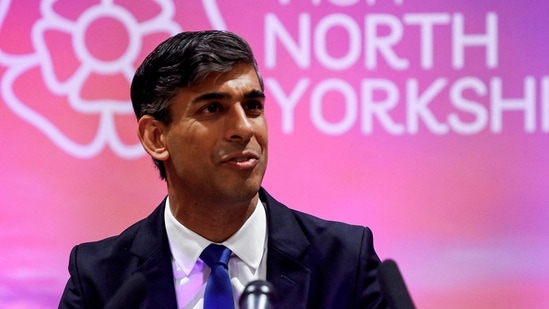The pound and British stocks and government bonds rose on Friday after the centre-left Labour Party surged to a comprehensive win in a parliamentary election.

The bluechip FTSE 100 index rose 0.38% at the open, along with midcaps 0.4% higher. The yield on 10-year British government bonds or gilts, dropped 3 basis points to 4.17%, largely in line with other European markets.
Sterling was up nearly 0.1% by 0708 GMT against the dollar at $1.2777 and steady against the euro, which was at around 84.75 pence.
Labour won a massive majority in the 650-seat parliament with Rishi Sunak’s Conservatives suffering the worst performance in the party’s long history as voters punished them for a cost of living crisis, failing public services, and a series of scandals.
“A landslide victory provides the sort of clarity and stability that equity markets need in an increasingly volatile world,” said Ben Ritchie, Head of Developed Market Equities at abrdn.
“If the new government get this right, businesses with significant exposure to the UK economy should be the likely winners – a shot in the arm in particular for companies in the FTSE 250 and FTSE Small Cap”
Sterling has edged up since Sunak called the election in late May, earlier than anticipated. It is the strongest-performing major currency against the dollar this year, with a gain of 0.3%.
On a trade-weighted basis, the pound is now back where it was in 2016, at the time of the Brexit vote, reflecting a belief among traders and investors that a period of intense market volatility, driven by political and economic tumult under the Conservatives, may be drawing to a close.
“We know Labour were going to win, so this doesn’t change much and this isn’t a game-changer for sterling. We now want to know what Labour’s plans are,” said Kenneth Broux, head of corporate research for FX and rates at Societe Generale.
“Investors have been long sterling and sentiment has been good and the results won’t change that.”
Read more: ‘Change begins now’: Keir Starmer delivers victory speech as Rishi Sunak concedes defeat in UK election
Echoing this sense of calm in the run-up to the election, the premium that investors demand for the extra risk of holding gilts rather than top-rated German 10-year bonds has remained stable this year around 160 basis points – a far cry from the 230 bps seen during a mini-budget crisis in 2022.
UK stocks have hit record highs this year, buoyed by a slow-growing but comparatively stable economy and decelerating inflation.
TRUSS DEJA VU
However, the memory of the market chaos triggered by former prime minister Liz Truss’ “mini budget” of September 2022 is still relatively fresh in investors’ minds and Britain’s stretched finances will give any new government little leeway to increase spending.
So preserving investor trust while tackling numerous economic challenges will be paramount.
Truss lost her parliamentary seat in Thursday’s election.
Read more: Reform UK leader Nigel Farage secures first Parliament seat on eighth attempt
“There is a lot of spending that (Labour) have pledged as well and only 20 billion pounds’ worth of fiscal headroom – give or take – so how those books are going to be balanced is a key question,” Pepperstone senior research analyst Michael Brown said.
“And this plan for 2.5% annual GDP growth is punchy, if I’m being kind, fanciful if I’m being slightly less kind and if we don’t get that growth relatively quickly, you could be looking at a pretty significant fiscal tightening going on,” he added.
Britain has suffered from the highest inflation and some of the highest interest rates in the developed world in the last couple of years.
UK 10-year government bond yields have risen this year to around 4.2%, as investors have sold debt based on their assumption that British interest rates will take longer to fall than many had previously anticipated.
The Bank of England is widely expected to lower interest rates at either its August or September meetings. Investors are likely to quickly look beyond the results of Thursday’s election and towards monetary policy, analysts said.
Read more: UK Election 2024: What PM face Keir Starmer said about ‘Hinduphobia’ in UK
“What’s going to be really interesting is there isn’t actually that much headroom for dramatic change in fiscal policy,” City Index senior markets strategist Fiona Cincotta said.
“So I don’t think there is anything that is going to massively move the market as far as these elections are concerned now until the Autumn Statement, so the focus is going to shift, probably pretty quickly, back to the Bank of England,” she said.


